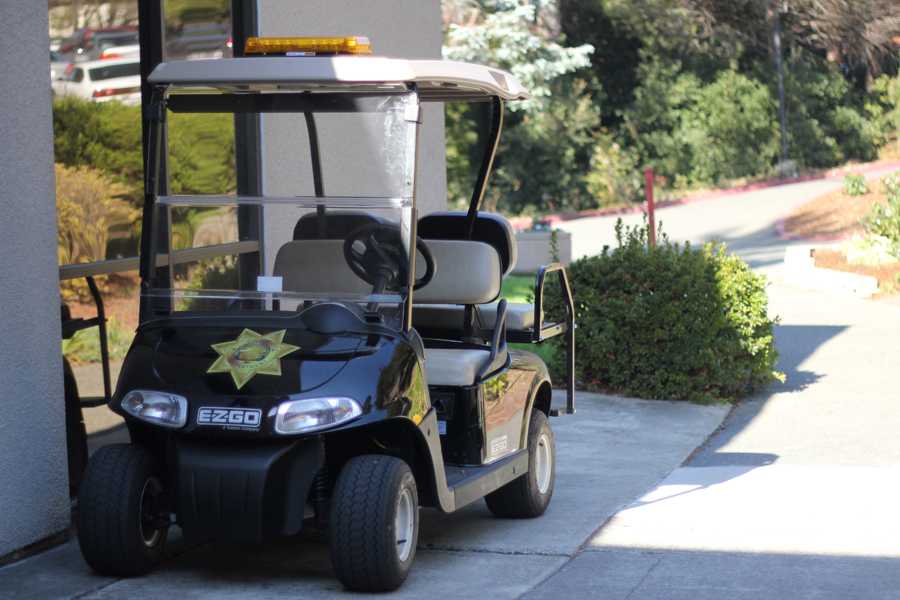Students left without ride during downpour
During winter months the campus patrols will decrease
Oct 24, 2014
The police aide carts normally used to assist students with physical disabilities and increase police presence on campus will experience lapses in service in the event of rain.
The only days on which the carts are unavailable to all are rainy days, Police Services Lt. Jose Oliveira said. The carts have no windshield or anything to protect the drivers from the elements, and there is no kind of harnessing for the passengers. Along with that, the pavement is also slippery and can be hazardous, Oliveira said.
On dry days, however, it will be business as usual for student police aides at Contra Costa College.
Oliveira said he wants to dismiss the popular belief that police aides will give rides to anyone on campus.
“Obviously, there are not enough carts to go around for everyone on campus to get a lift,” Oliveira said.
The carts’ secondary use, he said, aside from providing quick transportation for police aides, is to assist students that are a part of the Disabled Students Programs and Services. DSPS students, whose physical conditions can often hinder their walk from building to building on campus, are a priority to help, he said.
Luanna Waters, who makes use of the rides when her fibromyalgia acts up, is very content with the service. She takes consideration of others who may need the service more than her, and tries to use it only when completely necessary.
Waters believes that the privilege for use of the carts should be granted to those who need it and cannot physically get themselves from place to place.
There are a few other exceptions to being given a lift by one of the police carts, Oliveira said. One of those is if a student has a temporary injury, such as a sprained ankle or broken leg. These students can without a doubt be granted a ride as well.
There can also be escorts, provided by police aides, to anyone who fears for their safety, so long as the escorted person needs to be taken somewhere on campus, such as a parking lot.
The fact that some of those escorted are transported with the police carts is purely coincidental, Oliveira said. If an aide has the cart at the moment they are needed to provide an escort, then they will go with the cart rather than on foot.
Waters says that it is great that Police Services has stepped up and helped with the disabled students that need their assistance, but there should be a more specific service, in charge of just helping the disabled students.
“Other than that, (Police Services) are really good with accommodating and attending to people,” she said.
Outside of rainy days, any other day the carts can be requested, if one meets the requirements for a ride, Oliveira said.
Students can directly connect to Police Services through use of the red emergency phones available in almost any campus building. If a red emergency phone is not readily available, one can call the Police Services Office at (510) 236-2820.


